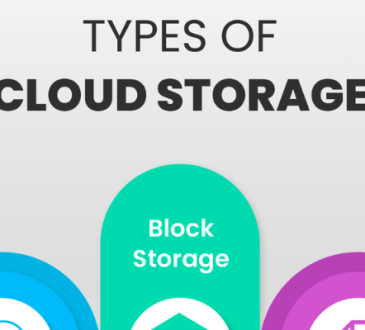
In today’s fast-paced, digitally driven world, cloud storage apps have become indispensable tools for individuals and businesses alike. These applications have transformed the way we store, access, and share data, offering a secure, convenient, and scalable solution for managing our ever-expanding digital lives. In this article, we will explore the evolution of cloud storage app, their key features, benefits, and the impact they have had on our daily lives.
Contents
The Genesis of Cloud Storage Apps

-
- Early Attempts at Remote Data Storage: The concept of remote data storage has been around for decades, with early forms such as FTP servers and network-attached storage (NAS) systems. These solutions allowed users to access their files from different locations, but they were often complex and required technical expertise to set up.
- The Birth of Cloud Storage Services: The real revolution in data storage came with the advent of cloud computing. Services like Amazon Web Services (AWS), launched in 2006, offered scalable and accessible storage solutions for businesses. However, these services were primarily designed for developers and IT professionals.
- The Emergence of Cloud Storage Apps: The turning point for cloud storage accessibility was the development of user-friendly cloud storage apps. Dropbox, founded in 2007, can be credited with popularizing this concept. It offered a simple and intuitive way for users to store, sync, and share files across devices. This marked the beginning of a new era in digital storage.
Key Features of Cloud Storage Apps
File Synchronization: One of the core features of cloud storage apps is file synchronization. Users can upload files to the cloud, and these files are automatically synchronized across all their devices. This ensures that you have access to the latest version of your files from anywhere.
Cross-Platform Access: Cloud storage apps are designed to work seamlessly across various operating systems and devices, including smartphones, tablets, laptops, and desktop computers. This cross-platform compatibility enhances their utility.
Data Security and Encryption: To address concerns about data security, cloud storage apps implement robust encryption measures. Data is encrypted both during transit and while stored in the cloud, making it difficult for unauthorized parties to access sensitive information.
Collaboration Tools: Many cloud storage apps offer collaboration features, allowing multiple users to edit and comment on documents in real time. This has revolutionized teamwork and remote work by enabling seamless cooperation regardless of geographical location.
Scalability and Flexibility: Cloud storage apps provide scalable storage solutions. Users can start with a small storage plan and expand as their needs grow. This flexibility is particularly beneficial for businesses with changing data requirements.
The Benefits of Using Cloud Storage Apps

Accessibility and Convenience: The primary advantage of cloud storage apps is the convenience they offer. Users can access their data from virtually anywhere with an internet connection, eliminating the need to carry physical storage devices.
Data Backup and Recovery: Cloud storage apps serve as reliable data backup solutions. In the event of hardware failure or data loss, users can recover their files from the cloud. This eliminates the risk of losing important documents and memories.
Cost-Efficiency: Cloud storage apps are often cost-effective compared to traditional storage methods. Users can choose from a range of pricing plans, including free tiers with limited storage. This affordability democratizes access to advanced data storage capabilities.
Enhanced Collaboration: Collaboration features offered by cloud storage apps foster productivity and teamwork. Users can collaborate on projects in real time, share files easily, and streamline communication within teams.
Environmental Sustainability: Cloud storage is more environmentally friendly than traditional storage methods. By reducing the need for physical storage hardware and data centers, cloud storage contributes to a decrease in energy consumption and carbon emissions.
Popular Cloud Storage Apps
Dropbox: As one of the pioneers of cloud storage apps, Dropbox remains a popular choice for users and businesses. It offers a user-friendly interface and robust collaboration features.
Google Drive: Integrated with the Google ecosystem, Google Drive provides seamless access to files, Google Docs, Sheets, and Slides. It’s widely used in both personal and professional settings.
Microsoft OneDrive: OneDrive is Microsoft’s cloud storage solution, deeply integrated with Windows and Office 365. It’s a strong choice for users who rely on Microsoft products.
iCloud: Apple’s iCloud is designed for seamless synchronization across Apple devices. It’s known for its integration with iOS and macOS, making it a convenient choice for Apple users.
Amazon Drive: Amazon Drive offers cloud storage with the added benefit of Amazon Prime integration. This service is suitable for users who want to store photos and videos.
Challenges and Concerns
Data Privacy and Security: While cloud storage apps offer robust security measures, concerns about data privacy persist. Users must trust the app providers to safeguard their data.
Internet Dependence: The reliance on internet connectivity for accessing cloud-stored data can be a drawback in areas with unstable or limited internet access.
Subscription Costs: While many cloud storage apps offer free tiers, users with substantial storage needs may incur subscription costs, which can add up over time.
Data Management: As users accumulate vast amounts of data in the cloud, managing and organizing files can become a challenge. Effective data management practices are essential to maximize the benefits of cloud storage.
Future Trends in Cloud Storage Apps

Enhanced AI Integration: Cloud storage apps are likely to incorporate AI-driven features such as content recognition, automated tagging, and predictive search to simplify data management.
Edge Computing: The integration of edge computing into cloud storage can reduce latency and enhance real-time access to data, especially for IoT (Internet of Things) applications.
Blockchain Technology: Blockchain can improve data security and transparency in cloud storage. It may be used for secure authentication and data integrity verification.
Augmented and Virtual Reality (AR/VR): AR/VR content is data-intensive, and cloud storage will play a crucial role in delivering and managing immersive experiences.
Conclusion
Cloud storage apps have come a long way since their inception, revolutionizing the way we store and access data. These apps have not only simplified our digital lives but also opened up new possibilities for collaboration and data management. While they come with their challenges, such as data security concerns and subscription costs, the benefits they offer in terms of accessibility, convenience, and cost-efficiency are undeniable.
As we move into the future, we can expect cloud storage apps to continue evolving, incorporating advanced technologies like AI, blockchain, and edge computing to provide even more powerful and secure storage solutions. With these innovations, cloud storage apps will remain essential tools for individuals and businesses in the digital age, empowering us to navigate the ever-expanding digital landscape with ease and confidence.



